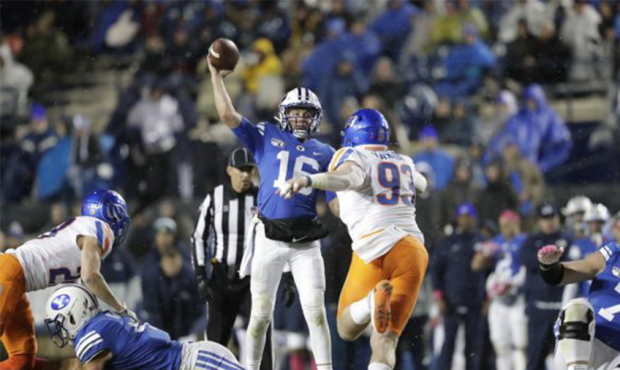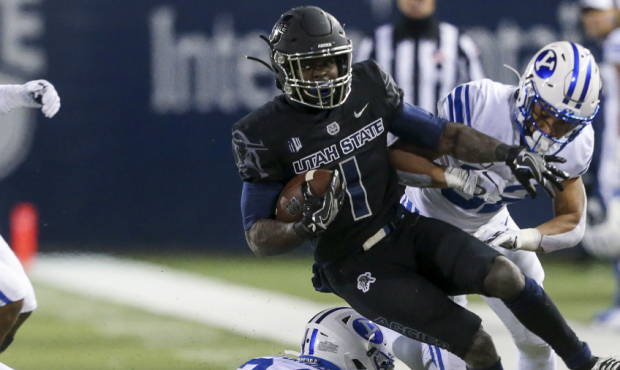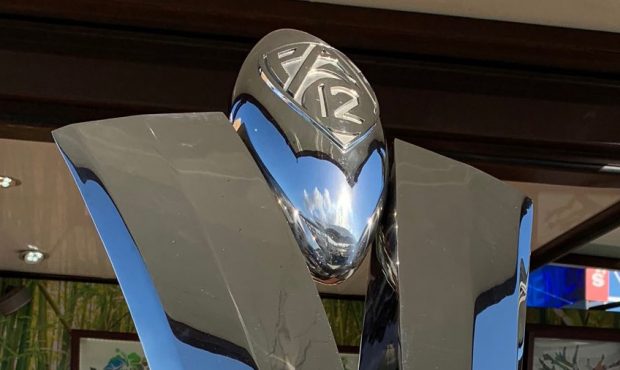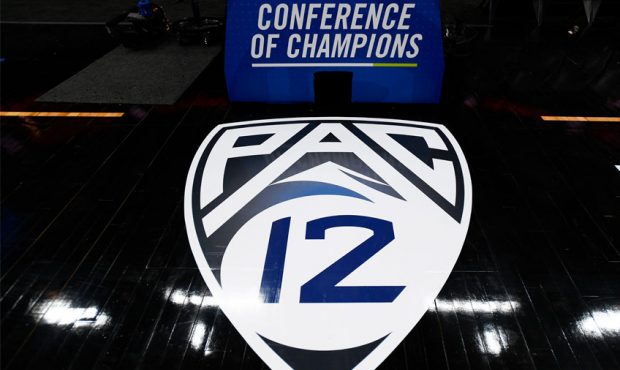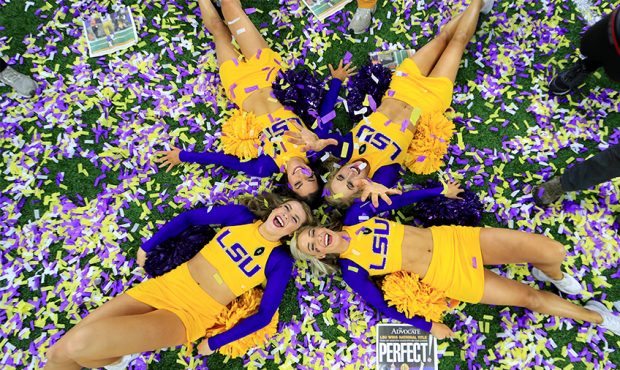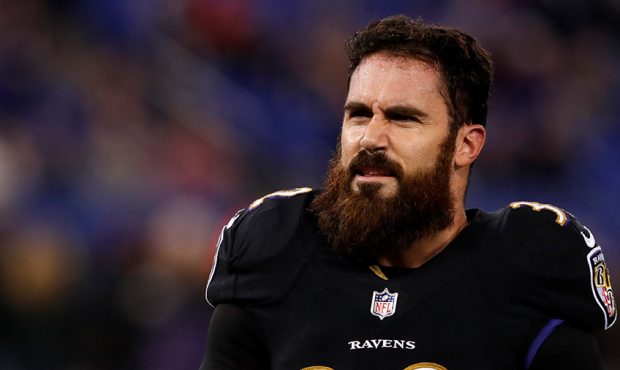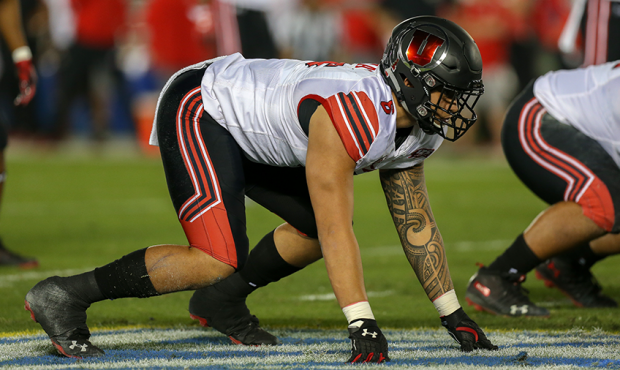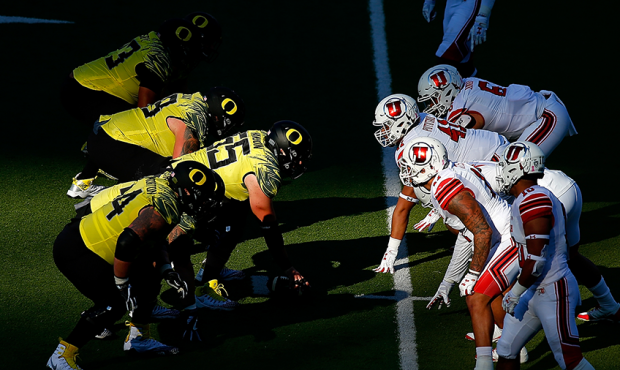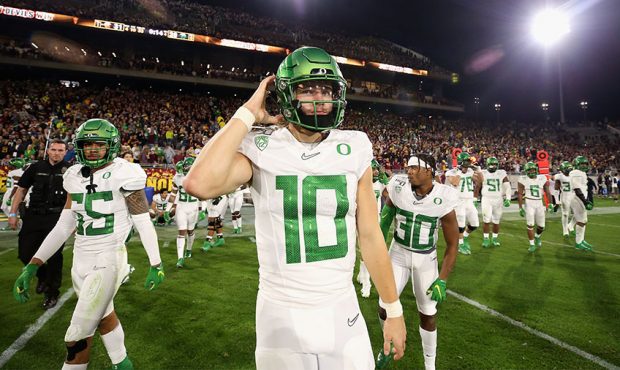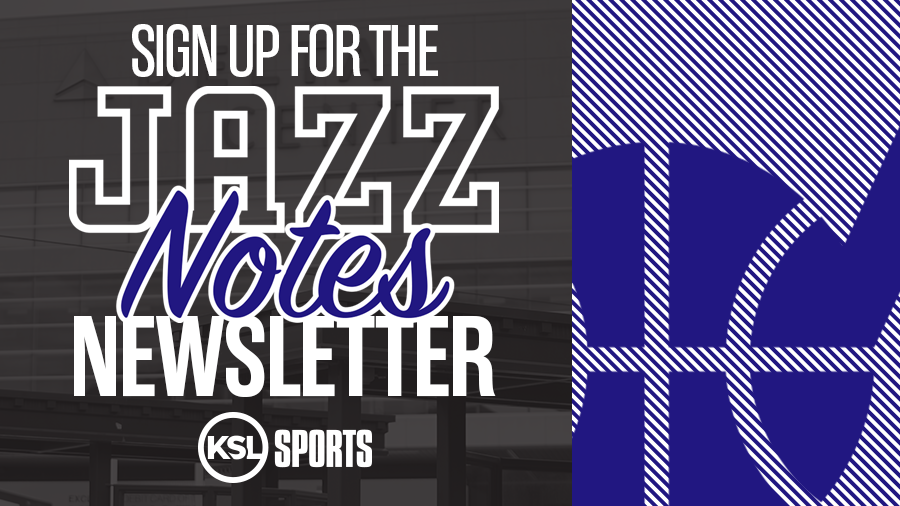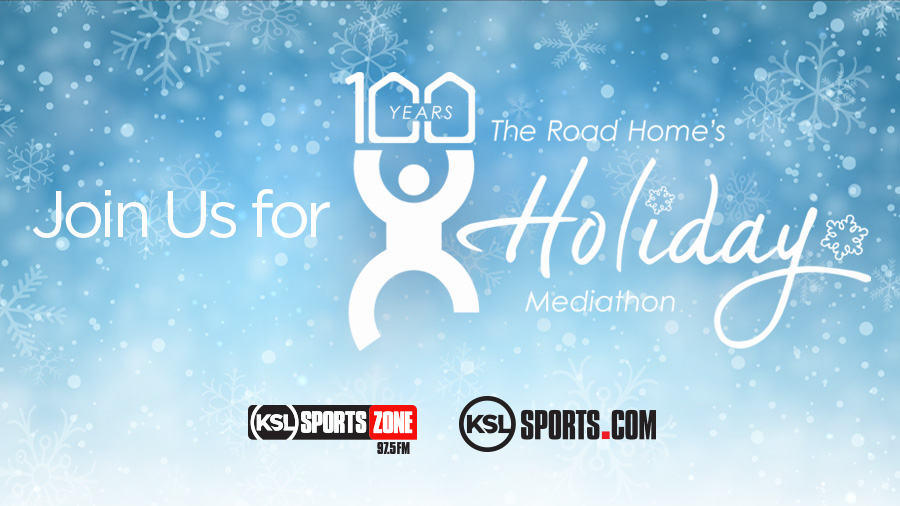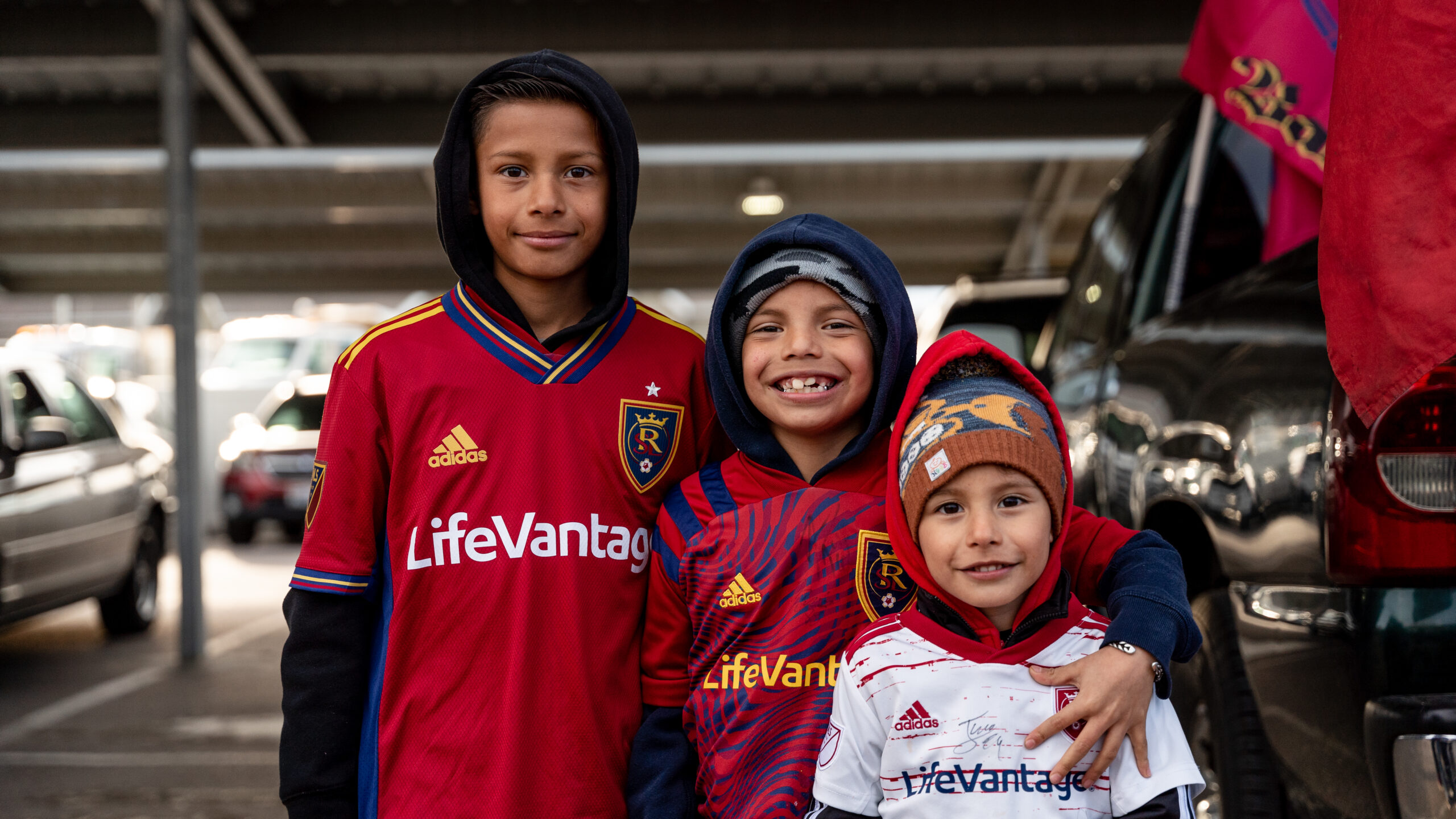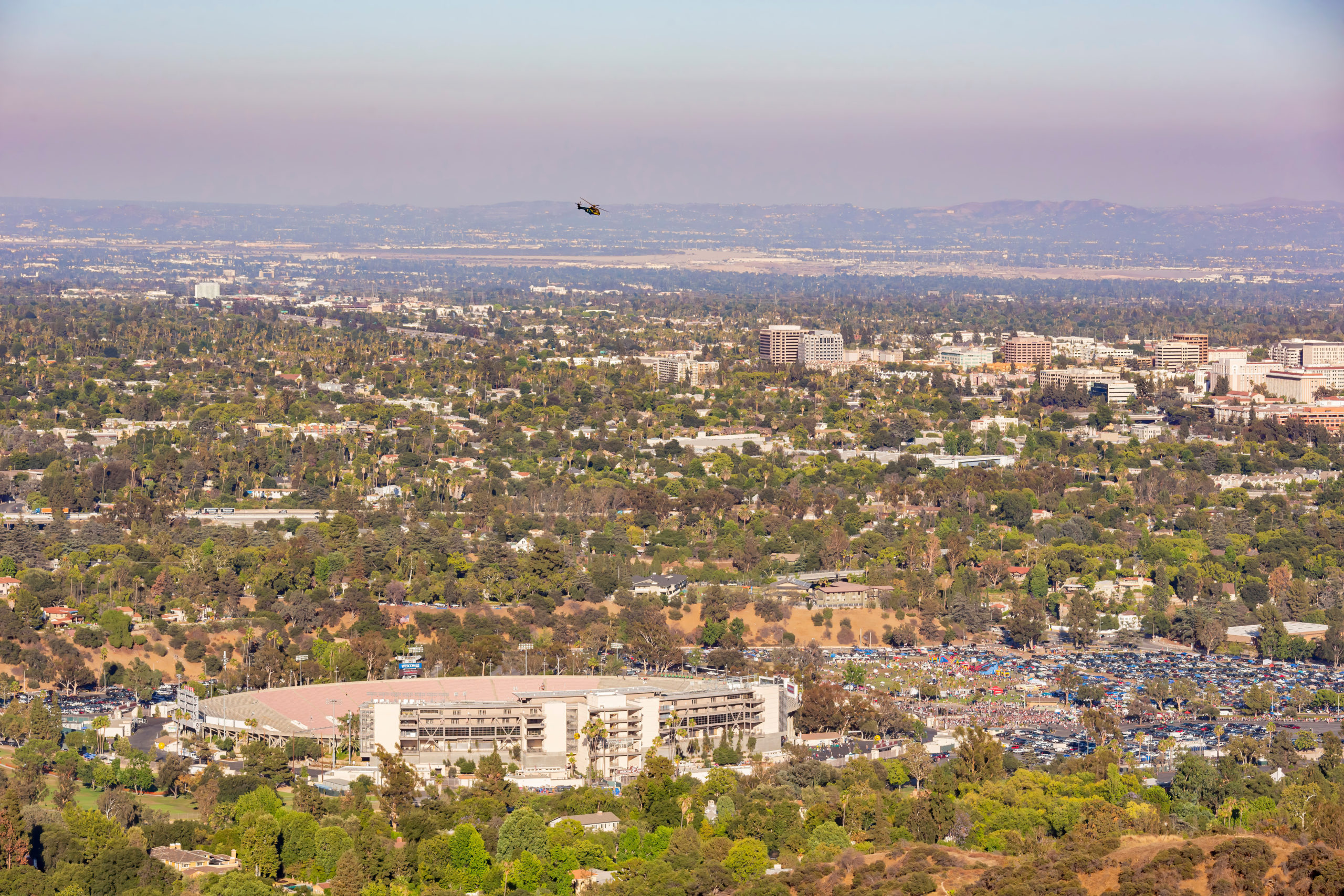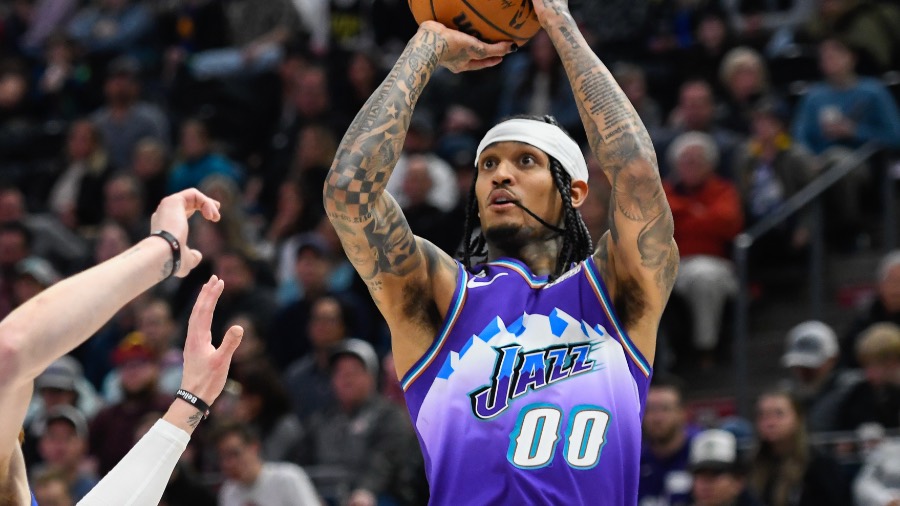O’Connell: Who’s To Blame For The Cancellation Of College Football? Society.
Aug 11, 2020, 12:09 PM | Updated: 4:31 pm
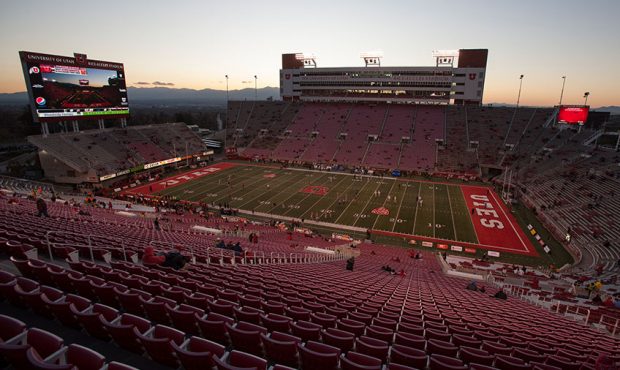
Members of the Utah Utes and the UCLA Bruins warm up as the sun sets over Rice-Eccles Stadium on November 16, 2019 in Salt Lake City, Utah. (Photo by Chris Gardner/Getty Images)
(Photo by Chris Gardner/Getty Images)
SALT LAKE CITY, Utah – The 2020 college football season is on the brink of collapse.
According to multiple sources, the powers-that-be are hours away from shutting it down and hoping for better options in 2021. The Pac-12 has already discussed handing out loans to athletic departments to help them weather the economic apocalypse that an absence of football revenue represents. It feels like we are past the “how do we fix this?” phase.
I have never hoped for so many reputable voices in college sports news to be wrong. Like many football fans today, that thin hope leaves me frustrated at best and furious at worst. These feelings lead me to ask another question…
‘Whose Fault Is It?’
I know, I know, pointing fingers and placing blame is rarely a constructive exercise, but let’s not pretend to be mature about this. We are losing the game we love and all of the jobs that go along with it, so I feel justified in my petulance.
Do we blame the players? Last week the Pac-12’s finest submitted a list of demands that were impossible to meet. This week they are all but begging to play. Mixed messages and imperfect unity can be expected from hundreds of different individuals representing twelve different schools and hailing from any assortment of different backgrounds and upbringings. The players wanted their voices heard. What those voices are saying will continue to change as we move forward, but that’s actually how it should be on the rapidly-changing landscape of big time college sports. So… no, we don’t blame the players.
The @pac12 student-athletes that are a part of the #WeAreUnited unity group came away disappointed with their meeting with conference commissioner Larry Scott.#GoUtes #Pac12FB https://t.co/6reyYFChsh
— KSL Sports (@kslsports) August 9, 2020
Is it the fault of the coaches? Are they culpable for not keeping better tabs on their student athletes as they return to campus and workouts?
Again, the who-to-blame answer is “No.” In actuality, most programs have done a great job of following correct procedures and medical advice. Positive cases were quarantined, and continued testing has yielded encouraging numbers within programs. (Which makes this doomsday wave of season cancellations that must more frustrating)
Do we blame NCAA leaders? I think the best answer here is hardly an answer at all. Yes and No both apply. The NCAA office and the people in it themselves get a firm waggling of the blame-finger. They’ve shirked responsibility going all the way back to March when the virus took its first swing at college sports. Leagues were left to cancel their own postseason tournaments and close down campuses.
When the NCAA finally said “um…. No March Madness,” it read like a line straight from those Captain Obvious commercials. In the five months since that happened, Mark Emmert and company have managed to do little more than shrug their collective shoulders and once again let individual leagues and divisions cancel on their own.
Conference leaders will get mixed reviews, but I’m not sure how much better they could have done in trying to pivot quickly to conference-only schedules and adjusted medical protocols that would stretch budgets to the max. I have been adamant in calling for a clear plan, but my sources have also told me that a carefully-laid plan was forthcoming.
Now it appears we may have run out of time. Whatever desperate hope for a Power-5 season still survives, it does so because conference commissioners, university presidents, and their teams of hired-gun medical experts have been working hard to exhaust any and all options. When the heads inevitably roll, some of these folks will be out of a job, but not all of them will deserve to be.
Do we blame ourselves for the disappearance of our beloved pastimes this fall? As individuals? Maybe. Probably. As a society? We are, tragically, definitely to blame. We did this to ourselves. We killed college football and if it wasn’t for the absurd amounts of money pro leagues are capable of spending to isolate themselves and stay alive, we would have killed the NBA, NHL, MLB, MLS, WNBA, UFC, and NFL too (at least for this year).
Nothing is going to highlight the NCAA's ineptitude, lack of leadership, and broken system more than watching college football be cancelled everywhere while a bunch of places are still holding little-league and high school games and the NFL plays on Sunday.
— Sean O'Connell (@realOCsports) August 10, 2020
This coming stoppage isn’t about player safety. It’s about liability. We have collectively created a culture of blame and litigation aimed at anyone who even allows us to choose to engage in a risky behavior. We have built a narrative that college athletes are helpless, childlike, indentured servants who must be protected from the evil system and themselves because we are too scared to admit that a scholarship is a form of compensation which means that a college athlete is a low-level pro.
We have become slaves to semantics and optics to the point of crippling our own beloved institutions out of simple fear of how things will look. And of course, we can never actually agree on just exactly how things look. We demand our viewpoint be validated and our unique situation be considered and our sensitivities be addressed. COVID-19 has proven not only to be a pernicious virus, but an agent seemingly sent to reveal our collective weakness as Americans.
Whether you are a COVID-19 truther who thinks this virus is just another flu bug and that masks are only necessary so the government can control us, or you are the other end of the spectrum retweeting every tragic anecdote of coronavirus’ grip on our American way of life and spraying your neighbors down with Lysol – you have contributed to the shuttering of college football.
With rare exceptions, everyone on the spectrum has done their part in politicizing the issue, carefully selecting the stats that dictate their behavior, or engaging in risky behaviors just because 100 percent diligence is exhausting and inconvenient. We create the push and the push back and the arguments and fake news to refute other fake news.
‘Our Society Failed’
We all did our part in fostering an environment where it was hard to know what to believe in a scary situation revolving around a new virus that was either the worst plague in human history, or a minor case of sniffles, depending on which news network you watch. Our society failed in isolation and mitigation and letting science dictate our collective behavior.
As punishment, we won’t get to sing our fight songs, or talk trash to our rivals, or even complain about the inevitable loss of a game that we should have won. We won’t get to watch Weber State make a legitimate run at the National Championship, Kyle Whittingham reload the Utes and prove his place as a top coach in the Pac-12 or see Kalani and company put an experienced O-line in front of multiple dynamic QB talents. No Aggie Blue. No T-Bird’s in blackout helmets.
Many @Utah_Football players took to social media to express their interest to play football in the fall.#GoUtes https://t.co/mnq6iBBnM2
— KSL Sports (@kslsports) August 10, 2020
While Europe plays soccer and New Zealand puts fans in the rugby stadiums, we’ll be re-bingeing reality debacles like Tiger King and Selling Sunset on Netflix. We’ll point fingers at every reason why we can’t have nice things, and never really get a good answer on exactly who deserves the worst of our frustration. But we can’t live in denial for much longer if we want to see college hoops, or a full NFL season, or a 2021 fall football slate for that matter.
We can’t rely on the government, or the NCAA, or any conference leadership to haul us out of our football depression. Waiting for a vaccine, better testing, or new drugs is a fool’s errand.
This is our fault.
Only we can fix it.
Sean O’Connell is a columnist for KSLSports.com and a Sirius XM radio host on the Pac-12 channel. Follow him on Twitter: @realOCsports.

